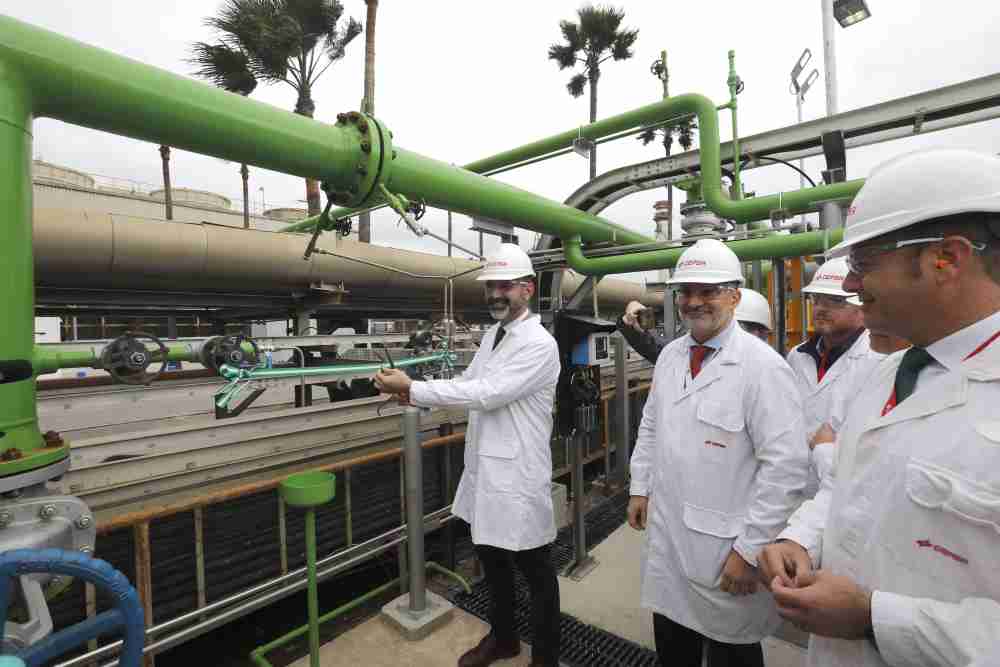CEPSA to build €1.2 billion biofuel plant in Spain – largest in the world
 Turning Seashells into Solutions: A Breakthrough in Singapore's Ocean-Based Carbon Removal Plant
Turning Seashells into Solutions: A Breakthrough in Singapore's Ocean-Based Carbon Removal Plant
Spanish oil and gas multinational CEPSA has teamed up with independent biofuels developer Bio-Oils to build a plant that will churn out 500,000 tonnes of sustainable aviation fuel (SAF) and renewable diesel annually starting in 2026.
The plant, a 2G biofuels facility, is expected to complement the partners’ existing operations in Huelva, Spain, creating the second-largest renewable fuel complex in Europe. The project, valued at €1.2 billion, will also manufacture biogas, a crucial ingredient for producing green hydrogen and fertilizers.
The biogenic CO2 captured during biogas treatment by CEPSA will play a pivotal role in synthesizing green methanol, a clean fuel vital for decarbonizing large maritime vessels.
Maarten Wetselaar, CEO, CEPSA, sees the upcoming biofuels plant as the first significant milestone of the company’s Positive Motion strategy. He emphasized its strategic importance for Spain and Andalusia, positioning them as European leaders in green molecule production and facilitating immediate decarbonization efforts in sectors like aviation.
CEPSA aims to achieve an annual biofuels production capacity of 2.5 million tonnes within the decade.
Sustainable aviation fuel (SAF) could bridge the gap between conventional fossil fuel-powered aircraft and future electric- and hydrogen-powered ones. CEPSA and its new partner estimate that the fuels produced at their new complex will prevent three million tonnes of carbon dioxide (CO2) emissions annually, equivalent to 4% of Spain’s road transport emissions.
Global SAF production is projected to triple in 2024 compared to 2023 levels, reaching 1.5 million tonnes. However, sustainable feedstock availability remains a challenge in many regions.
To address this, the new CEPSA biofuels plant will primarily utilize organic waste, such as agricultural residues and used cooking oils, secured through a long-term agreement with vegetable oil processor Apical.
CEPSA says that the concept behind second-generation (2G) biofuels underscores the utilization of waste materials that would otherwise be discarded or landfilled.
Pratheepan Karunagaran, Executive Director at Apical, lauded the collaboration with CEPSA, citing their joint venture as a prime example of industry cooperation in unlocking the potential of SAF and scaling up its adoption affordably.




